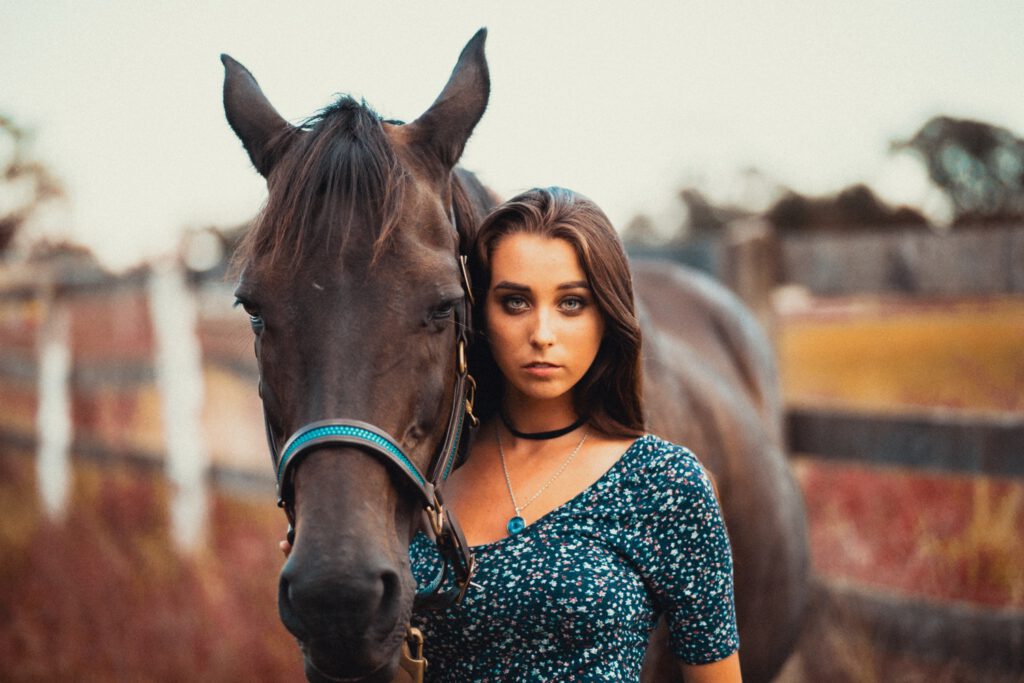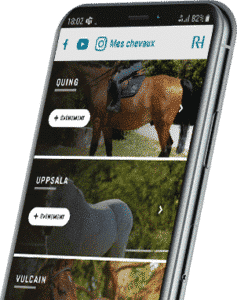The purchase of a horse is not a trivial act, it corresponds to a financial investment often not negligible, and it commits the future owner for several months or several years. It must therefore be carried out in good conditions, the first of them being to choose well. The search for a horse has been carried out, and the choice has been made on a horse corresponding as well as possible to the animal hoped for. It is now necessary to concretize the purchase. To do so, there are both rules to respect, and acts, certainly not compulsory, but strongly advised, to practice. Where to buy a horse? How do I choose the right horse among all the horses that are for sale? Should I be tempted by a cheap horse?

To choose a horse, there are two possible options: to look for it by yourself or to entrust this search to a professional.
Finding a horse for sale by yourself
This solution should only be used by people who are already experienced, who know the business well, and who are able to correctly evaluate the horses that are presented to them.
There are two main possibilities.
Visit the farms that offer horses for sale
This possibility is reserved for those who wish to acquire a young horse and who, moreover, have a lot of time at their disposal, as far as such a visit requires numerous contacts, then appointments, travels and a significant amount of time spent in the stud farms.
Consult the classified ads for horse sales
They appear in specialized magazines or on Internet sites.
The classified ads are numerous and often offer a large choice. But be careful, they are often partial and sometimes a little far from reality. They can come either from professionals or from individuals who wish to part with their horse. Of course, a classified ad will never be enough to buy a horse, which must be examined before any purchase, but they are interested in that they allow you to “visualize” the market: type of horses for sale and prices charged.
Calling on a professional to find a horse for sale
Here again, there are two possibilities.
Buy a horse via the club’s teacher
It is a professional who must know the market, at least for amateur horses. He also has the advantage of knowing the client who wishes to buy a horse and can therefore identify the type of animal that may suit him. If he is serious, he will know how to do it well, which is his interest as far as he will be able to continue to advise his client as an owner in his establishment.
Buying a horse through a horse trader: either a dealer or a broker.
The dealer buys horses, works them to perfect them and sells them.
A broker searches for horses for a buyer and puts him in contact with a seller directly. The advantage of the dealer is that he often has a large choice of horses which allows him to see many horses in a short time and without having to travel far.
How to choose a horse?
The most important thing is of course to find a horse, and especially when it is the first one, “at his size”.
The old adages are always full of good sense: “To young riders, old horses.
Purchasing criterion n°1: the age of the horse
The age of the horse: it is the first criterion of choice.
The more experienced the rider is, the more he can afford to choose a young horse that will be little worked, but that he will have the ability to train and dress.
Conversely, a young rider will have much more pleasure and satisfaction in buying a horse that “already knows his stuff”.
Buying criterion n°2: the sex of the horse
Whole horses should be reserved for experienced riders. The choice between a gelding and a mare is more difficult to qualify. Geldings are often calmer. Mares are sometimes difficult or can cause problems during heat periods. They offer the possibility, if necessary, to have a brood mare, the day you don’t want to ride anymore, but offer yourself the pleasures of breeding.
Buying criterion n°3: the horse’s breed
The breed: this criterion is not insignificant depending on the use for which the horse is intended. Some breeds are more adapted to certain disciplines than others. By their morphological characteristics, some can be more comfortable than others. Finally, some breeds are hardier or, conversely, more fragile than others.
Purchasing criterion n°4: the size of the horse
Here again, this is an important criterion of choice. Veterinarians often say that “their bill is proportional to the size at the withers”, in other words, the bigger the horses are, the more fragile they are. Beyond this fact, the size must be adapted to the size of the rider (a child will be better on a 1,35 m pony than on a 1,70 m horse), but also to the practiced discipline (to walk with a 1,55 m horse it is often more pleasant than a 1,75 m one).
Purchasing criterion n°5: the price of the horse
This is obviously a determining criterion as far as all prices exist and we must not forget that the purchase price is one thing, but then there is the maintenance, which is relatively expensive. There are horses on the market at all prices: from 1000 euros to several millions. The quality of a horse is not necessarily proportional to its price, but it is obvious, nevertheless, that you cannot have the best horse in the world if you only have a budget of a few thousand euros.
Try a horse before buying it
One never buys a horse, whatever the conditions, without having tried it, as far as its age allows it.
When a horse has met the selection criteria, it is therefore advisable to ride it yourself, but it is also advisable to have it ridden in front of you, to look at it, but also to have the opinion of another person.
Any serious salesperson cannot refuse you such a test, and, if such were the case, it would be suspicious. You should not hesitate, if you feel the need, to repeat such a test 2 or 3 times, if necessary, by practicing the exercises and the type of use for which you want to buy it.
Choosing a horse is therefore an important act that must be carried out carefully, having first well defined what you are looking for. By taking the time to evaluate the horses presented, without hesitating to call upon professional advice, even if they will be paid, which is normal, but which is also a guarantee of greater security.
The regulation linked to the purchase of a horse
Legally, the sale is a quite simple act since “the sale is perfect, as soon as there is agreement on the thing and the price”.
This little sentence is particularly important. Indeed, as soon as the agreement is taken with the seller, the buyer becomes immediately the owner and thus assumes the responsibilities.
This transfer of ownership is completely independent of the notions of delivery and payment. Even in cases where the actual taking of possession can be deferred (by delivery of the horse to a new stable, for example) or if an agreement for payment in several instalments is made, the buyer is the full and complete owner as soon as the agreement is made. Beyond this notion of transfer of ownership, the seller has obligations.
Essential act before buying a horse: endorsing the ownership card
Since a decree of the Ministry of Agriculture of October 30, 1997, no equine can be sold in France, for a fee or free of charge, if it is not previously identified at the seller’s expense.
The latter is therefore obliged to give the buyer a registration card, issued by the S.l.R.E. (Identification system listing the equids), which he will have signed on the back of the form provided for this purpose mentioning “sold on…, to Mr…”. The buyer must then send this card to the S.l.R.E., which will issue a new one in his name.
To give the document of accompaniment of the horse
This is not a document of ownership, but a kind of identity card and health record of the horse. It bears the animal’s registration number, which must be checked to ensure that it corresponds to the horse sold. The record book must follow the horse and be given to the buyer on the day of delivery.
Issuing an invoice
This is mandatory, whether the seller is a private individual or a professional.
The invoice must include at least:
- the identity of the seller and the buyer, as well as their respective complete contact details;
- the date of the sale;
- the name of the horse and the number of the identification document;
- the price paid and the amount of VAT.
It is also advisable to mention on the invoice the purpose for which the horse was purchased.
The recommended actions during the purchase of a horse
Also called “purchase visit” or “purchase expertise”, it consists in having the horse examined by a veterinarian, who draws up a “medical inventory”.
A veterinary visit of purchase
This act obviously has a cost which is added to the purchase price since such a visit is always at the expense of the buyer, but it brings the insurance that the horse purchased does not present on the day of the purchase of flagrant anomalies which could make it regret the acquisition.
Such a visit is obviously not a guarantee of good health for life of the acquired horse, nor even a 100% guarantee that the horse is “perfect”.
Whenever possible, it is desirable that this visit be performed by a veterinarian chosen by the buyer, but at the seller’s home before delivery. Otherwise, it should be done as soon as possible after the sale. Indeed, if the veterinary visit highlights a defect likely to compromise the use for which the horse is acquired, either a redhibitory defect or a hidden defect, it must be noted quickly to cancel the sale under good conditions.
The veterinary visit is finally the occasion, during a first purchase, to ask the veterinarian for some useful advice concerning the feeding, the prophylaxis (vaccinations, deworming…), the possible protection measures to take.
The insurance of the horse
Another important act is to ensure your horse, which allows you to compensate financial losses in case of accident.
The signature of a contract of sale of the horse
“Words pass, writings remain.”
A sales contract is not mandatory, and many sellers are reluctant to do so, but it is highly recommended as far as it allows to put “black on white” all the precise conditions of the transaction.
There are easy-to-use contract templates on the market. These contain all the points that need to be settled between the seller and the buyer, with diverse options that will be the subject of special agreements.
Such a contract could include a veterinary visit, indicating that the sale is subject to this visit (sale under suspensive condition: in other words, the sale will only be completed if the veterinary visit is favorable; or sale under resolutory condition: the sale is completed, but would be cancelled by law if the visit were unfavorable).
Such a sale contract avoids, in case of problems, to be in a situation where “it is the word of one against the word of the other”.
For more information: buying a horse


